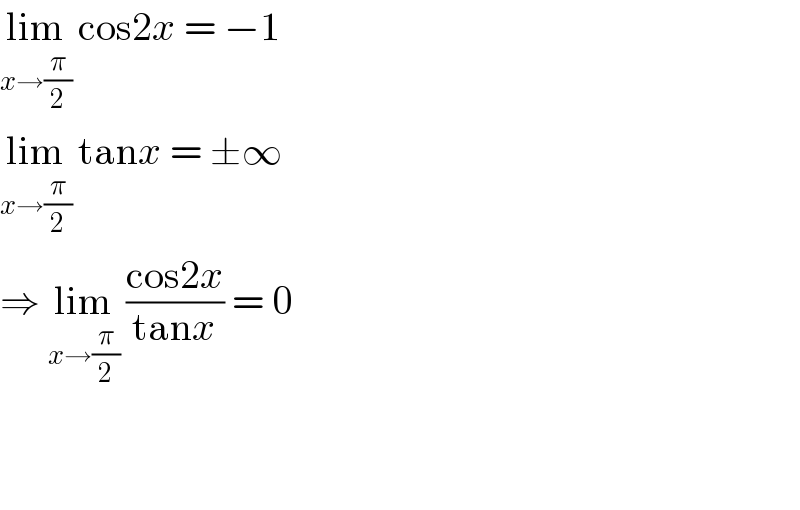
Question and Answers Forum
Question Number 115604 by bemath last updated on 27/Sep/20
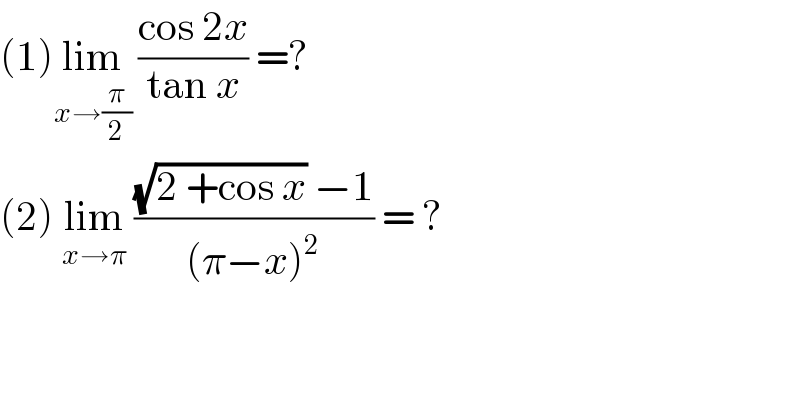
Commented by Dwaipayan Shikari last updated on 27/Sep/20
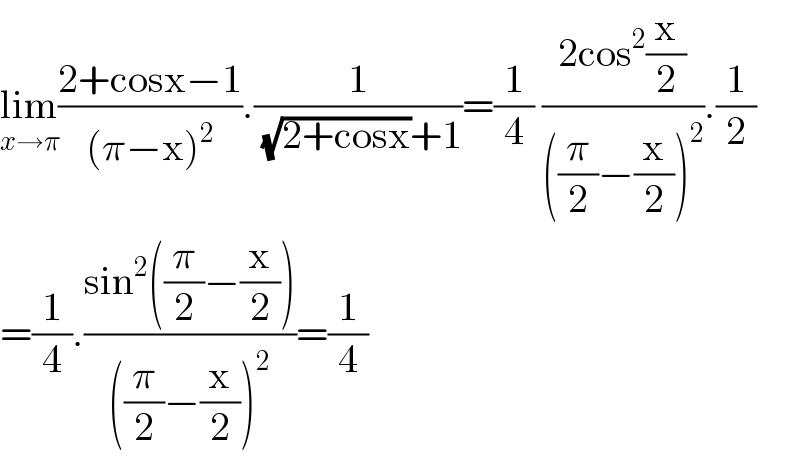
Answered by bobhans last updated on 27/Sep/20
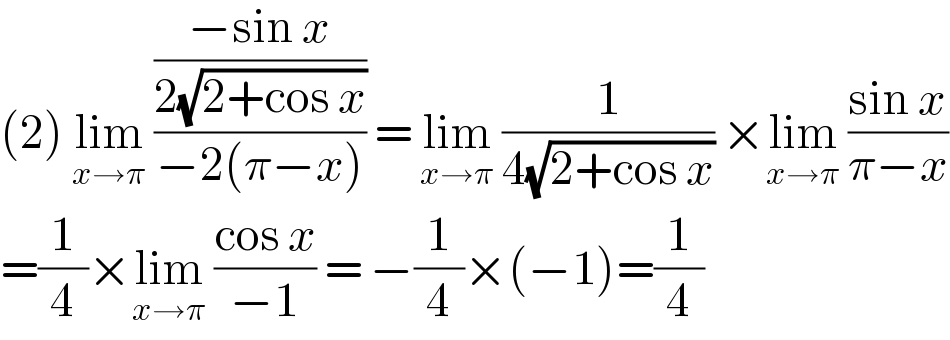
Answered by Olaf last updated on 27/Sep/20
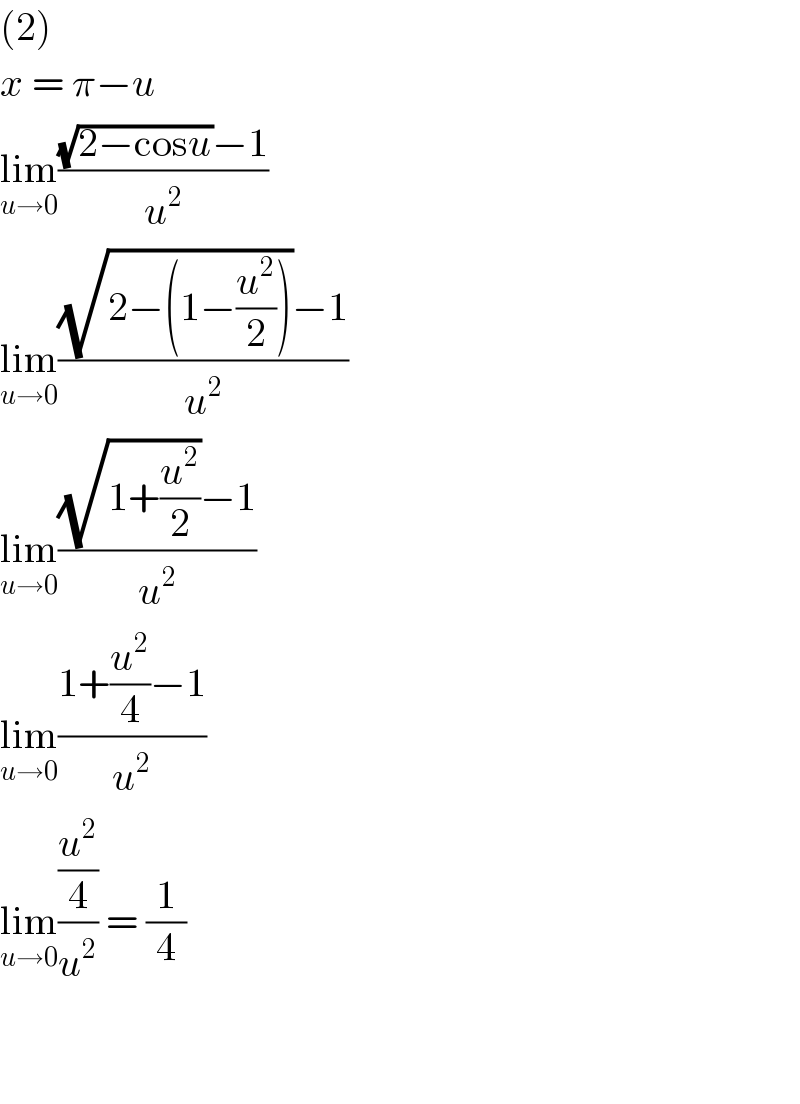
Answered by mathmax by abdo last updated on 27/Sep/20
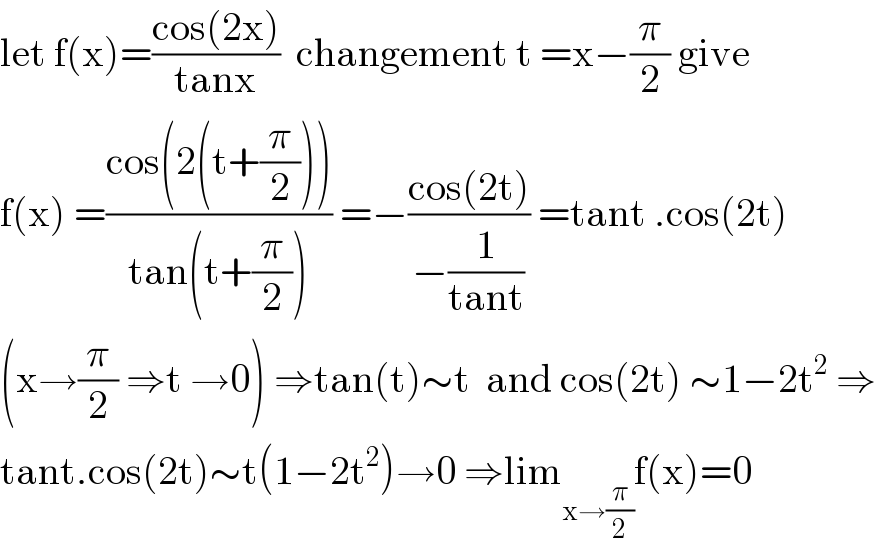
Answered by mathmax by abdo last updated on 27/Sep/20

Answered by bobhans last updated on 27/Sep/20
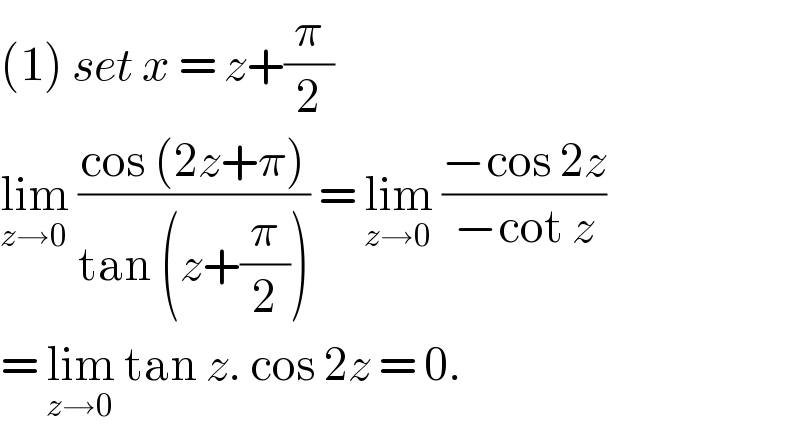
Answered by Olaf last updated on 27/Sep/20
